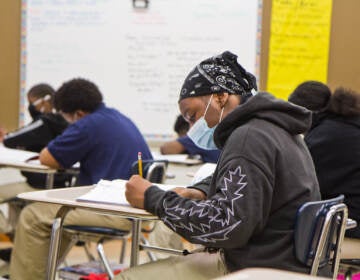Muslim Student Groups from N.J. and Pa. Universities Monitored by NYPD
Muslim student groups from universities across the region are claiming that they’ve been unfairly targeted as terrorist hot-beds.
This after reports over the weekend found that the NYPD has been monitoring Muslim student groups at colleges across the Northeast, including the University of Pennsylvania and Rutgers University.
Mary Catherine Roper, an attorney with the Pennsylvania chapter of the American Civil Liberties Union, says police shouldn’t be doing this.
“Whether or not it’s illegal, it’s wrong to be monitoring people simply because of their religion when there’s absolutely nothing about their activity that would suggest that they pose a threat to anyone,” said Roper.
For its part, the NYPD feels justified in its work. “Some of the most dangerous Western Al Qaeda linked/inspired terrorists since 9/11 were radicalized and/or recruited at Muslim Student Associations,” said department spokesman Paul Browne.
The ACLU thinks this type of reasoning is both faulty and harmful.
“I bet 100 percent of those people [terrorists since 9/11] also ate in student cafeterias, but that isn’t where the link is,” said Roper. “You have to look at the behavior…to routinely monitor groups simply because they are Muslim is a waste of law enforcement resources and an insult to everyone who is Muslim.”
The University of Pennsylvania down-played the NYPD’s actions — claiming the monitoring only pertained to the scanning of their students’ websites — not the students themselves.
But this news wasn’t much of a comfort to Penn’s Muslim Student Association. In an official statement released over the weekend, the group said it was “disturbed and disappointed” to be viewed as a threat by the NYPD — citing a mission to “establish a fun, inclusive, and engaging environment to create opportunities for the social, spiritual, and professional growth of those on campus interested in Islam.”
Elsewhere in the region, the NYPD’s monitoring did in fact go beyond mere web-trolling.
At Rutgers, NYPD undercover forces kept watch on a Muslim group in 2009—using nearby off-campus housing as their home-base.
A related report concerning the City College of New York found even more. In 2008, an undercover NYPD operative joined Muslim students on a rafting trip, and took notes regarding the frequency of their prayer habits.
Amro Mosaad, Board Chair of the Rutgers Muslim Alumni Association, found this revelation particularly startling.
“They came back basically with the report that these students were praying multiple times in the day — as if that’s something suspicious,” Mosaad said. “If that’s the kind of thing they’re looking for…then that makes a lot of us guilty of who knows what—because that’s the regular practice of Muslims.”
Rutgers University has said that it didn’t have knowledge of the NYPD’s actions at the time of the monitoring, and “does not condone the surveillance of any members of our community based on their race, gender, ethnicity or religious beliefs.”
Because the NYPD’s investigation brought them to locations outside of their official jurisdiction, many have questioned its legality.
On this subject, University of Pennsylvania law professor Kermit Roosevelt says it largely depends on whether the NYPD was actively working with local jurisdictions.
“If the NYPD coordinated with state or local law enforcement authorities, it would make some sense for them to be doing this,” said Roosevelt. “If they were doing this without the knowledge or approval of the states in which they were operating, that would be a more serious issue.”
A spokesman for the New Jersey State Police said that its members “were not aware, and had no involvement” in the surveillance in their state.”
Calls for comment were not returned by the Pennsylvania State Police, the Philadelphia Police Department, or the Philadelphia division of the F.B.I.
The NYPD, as well as New York City Mayor Michael Bloomberg, have maintained that their undercover operatives are in lawful standing to follow leads wherever they may go.
But opponents such as the ACLU have questioned the existence of those leads. They cite the fact that no students were arrested through this surveillance, and maintain that the surveillance seems to have been motivated purely on religious grounds.
“What bothers us is that this focuses on who these students are,” said Roper, “instead of what they are doing.”
WHYY is your source for fact-based, in-depth journalism and information. As a nonprofit organization, we rely on financial support from readers like you. Please give today.




